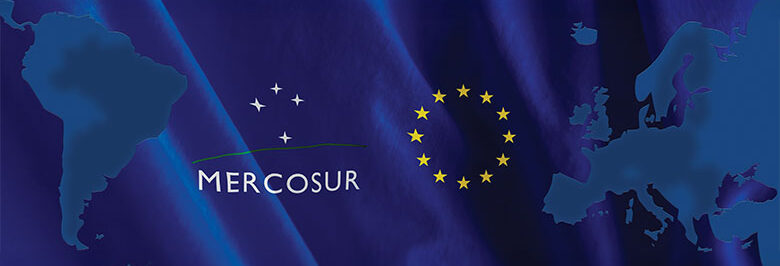Lynn Boylan MEP: Mercosur is a bad deal

Mercosur remains a bad trade deal that will have hugely negative consequences for our planet, farmers, and food safety in Europe, writes Lynn Boylan MEP, the European Parliament Environment Committee’s Mercosur Rapporteur.
Mercosur
Firstly, it is completely at odds with the EU’s climate goals. Increased agricultural exports from Mercosur will drive deforestation in critical ecosystems like the Amazon, Cerrado, and Pantanal. These regions are already facing alarming rates of deforestation and record-breaking wildfires.
In May 2025, I met with members of indigenous tribes in Brazil who travelled to Europe to implore the EU to reject this deal. Deforestation is an existential threat to them and their way of life.
Human Rights Watch’s report, Tainted: JBS and the EU’s Exposure to Human Rights Violations and illegal deforestation in Pára, Brazil, found that cattle ranchers have illegally seized land and devastated the livelihoods of farmers and indigenous communities. With no system to track its indirect suppliers of cattle, it is highly likely that beef and hides from these illegal ranches have found their way into the EU, the report states.
This is happening at a time when the EU is once again delaying implementation of the landmark Deforestation Regulation (EUDR), the initial delay was widely seen as a move to get the Mercosur trade deal over the line. In Brazilian negotiating texts, EUDR had been listed as a barrier to concluding the deal.
In an even greater insult to the delay, the European Commission then published its EUDR list of risk classification. Instead of using a sound scientific basis to list countries based on their risk of engaging in deforestation, they opted for a metric of whether a country was subject to EU sanctions.
We now have the bizarre situation, whereby Russia and North Korea; countries from whom we do not purchase timber, are listed as high-risk for deforestation, whilst countries with significant documented deforestation like Brazil and Indonesia are classified as low-risk.

Farmers
The agreement puts farmers, particularly small-scale and medium-scale farmers, at a serious competitive disadvantage. The agreement increases import quotas for Mercosur beef by 50 per cent (99,000 tonnes) and poultry by 180,000 tonnes. Additional provisions include a tariff-free quota of 190,000 tonnes of sugar and 650,000 tonnes of bioethanol.
Irish farmers are expected to farm to the very highest regulatory standards will now be competing with farmers in Mercosur countries who are not bound by those standards. Mercosur countries have lax regulations on pesticides, hormones, and animal welfare. Agricultural organisations can therefore operate at much lower costs and could flood the EU market with cheaper products. European agricultural organisations have been clear that this is a threat to food sovereignty and to the livelihoods of farmers.
Any short-term compensation package proposed by the European Commission will not address the long-term negative impacts on our farmers.
Food safety
From a food safety perspective, the agreement poses significant risks to the health and safety of citizens in the EU. Imported agricultural products from Mercosur are often produced using hazardous pesticides, including substances banned in the EU for decades. For example, 52 per cent of the active substances authorised for maize in Brazil and Argentina are banned in the EU.
Brazilian beef imported into the EU should also be a cause for alarm. Some chemicals like estradiol 17B have been banned in the EU for 40 years but are still widely used in Brazilian cattle farming. The use of antibiotics as growth promoters is also strictly forbidden in the EU in its fight to tackle antimicrobial resistance.
The EU’s own audit in 2024 found that Brazil cannot reliably trace or guarantee hormone free beef. Yet, the Mercosur trade deal proposes reducing import controls. It will allow exporters to self-certify compliance with EU standards.
The public have the right to know if the food being imported and sold on supermarket shelves is being produced to the highest public health standards.
Split agreement
In a final act of contempt for democracy, the EU Commission is splitting the agreement. This means that the trade aspect of the deal will not require national parliaments ratification and only a qualified majority at the EU Council. It is clear that President von der Leyen is determined to force this trade deal on the European public who have made clear their opposition to Mercosur.
As a member of the International Trade (INTA) and Environment, Climate and Food Safety (ENVI) Committees, I will be fighting this agreement every step of the way. I was honoured to be recently appointed the Rapporteur for the ENVI opinion on Mercosur and will be using the opportunity to highlight the significant climate and food safety risks.
The European Parliament also voted in an October 2025 plenary session against text supportive of the Mercosur trade deal and myself and colleagues are working on a resolution to refer the agreement to the Court of Justice to check its compatibility with EU law. Momentum is clearly growing against this agreement.





